Search
Remove Ads
Advertisement
Summary 
Loading AI-generated summary based on World History Encyclopedia articles ...
Search Results
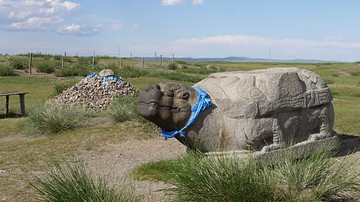
Definition
Karakorum
Karakorum (aka Qaraqorum, modern name: Harhorin) is located in the Orkhon Valley of central Mongolia and was the capital of the Mongol Empire from 1235 to 1263. Ogedei Khan (r. 1229-1241) ordered its construction, and had a walled palace...
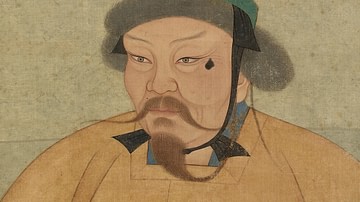
Definition
Ögedei Khan
Ogedei Khan (aka Ogodei) ruled the Mongol Empire from 1229 to 1241. He was the third son of Genghis Khan (r. 1206-1227), the empire's founder. Ogedei's accomplishments included creating a new capital at Karakorum, establishing a system of...

Image
Stone Turtle, Karakorum
A stone turtle at Karakorum, Mongolia, from the khan's palace there. The city was made capital of the Mongol Empire in 1235 CE by Ogedei Khan (r. 1229-1242 CE).
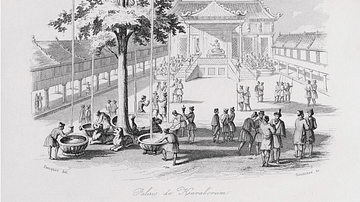
Image
Silver Drinking Tree, Karakorum
An illustration of the fabled silver drinking tree in the palace of Ogedei Khan (r. 1229-1241 CE) at Karakorum, then capital of the Mongol Empire (1206-1368 CE). The tree served many different alcoholic drinks from its various spouts. (From...
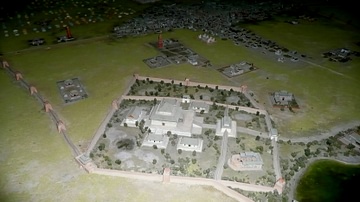
Image
Palace Model, Karakorum
A model of the khan's palace at Karakorum, capital of the Mongol Empire (1206-1368 CE) from 1235 to 1263 CE. (National Museum of Mongolian History, Ulaanbaatar)
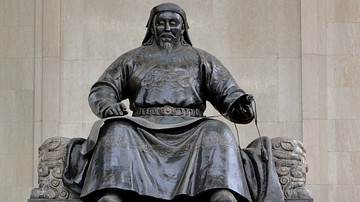
Definition
Kublai Khan
Kublai Khan (Qubilai-Qan) was the ruler of the Mongol Empire from 1260 to 1294. His accomplishments include establishing Mongol rule in China under the name of the Yuan Dynasty (1271-1368), thus becoming the first non-Chinese to rule the...
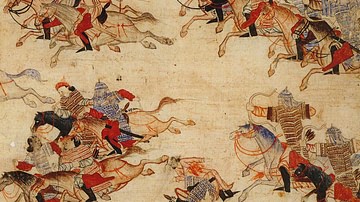
Definition
Mongol Empire
The Mongol Empire (1206-1368) was founded by Genghis Khan (r. 1206-1227), first Great Khan or 'universal ruler' of the Mongol peoples. Genghis forged the empire by uniting nomadic tribes of the Asian steppe and creating a devastatingly effective...
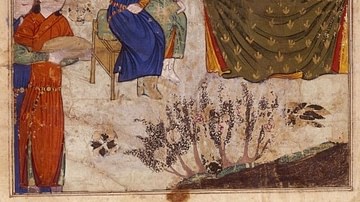
Definition
Möngke Khan
Mongke Khan was ruler of the Mongol Empire (1206-1368 CE) from 1251 to 1259 CE. As the third Great Khan or 'universal ruler' of the Mongols, Mongke would oversee administrative reforms that continued to centralise government and ensure he...
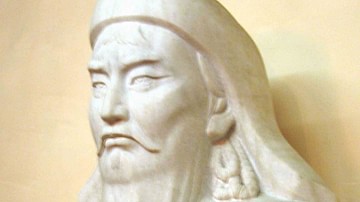
Definition
Genghis Khan
Genghis Khan (aka Chinggis Khan) was the founder of the Mongol Empire which he ruled from 1206 until his death in 1227. Born Temujin, he acquired the title of Genghis Khan, likely meaning 'universal ruler’, after unifying the Mongol tribes...
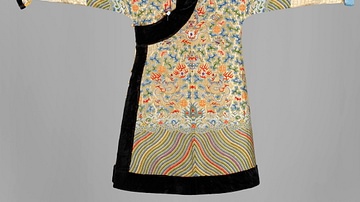
Article
Clothing in the Mongol Empire
The clothing worn by the Mongols in the 13th and 14th century CE, like most other aspects of their culture, reflected their nomadic lifestyle in the often harsh climate of the Asian steppe. Typical items included felt hats, long jackets with...